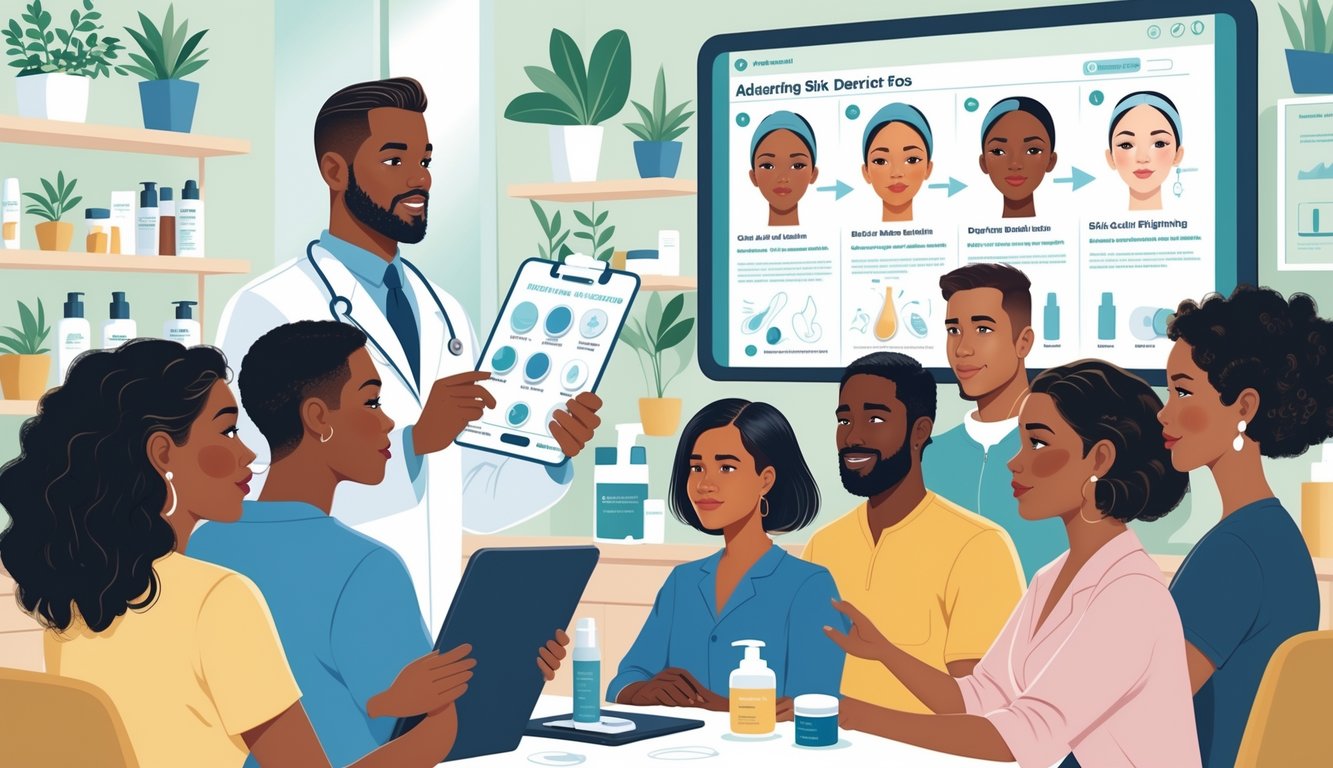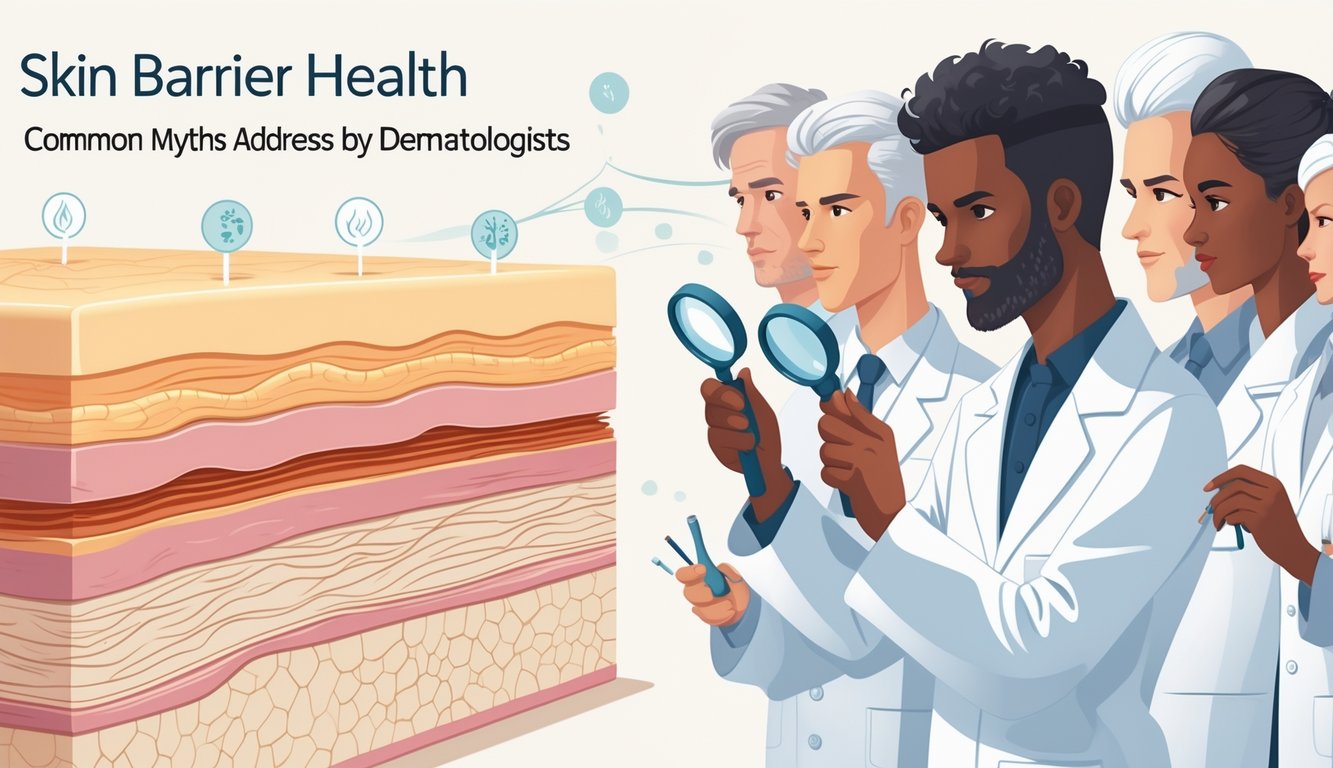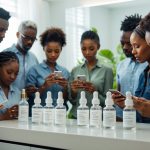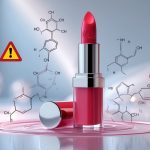Skin Barrier Myths Finally Addressed by Dermatologists for Concerned Adults
The Truth About Ingredients in Skin Care Products
Nothing makes me more confused than ingredient hype cycles—fragrance, alcohol, ceramides, lipids. Everyone is convinced they’re right. One week “natural” is king, next week, everyone’s slathering on whatever’s viral. Meanwhile, dermatologists keep repeating the same advice, but nobody listens.
Understanding Fragrances and Alcohols
Why does every product need fragrance? Marketing? Nostalgia? Boredom in the lab? I’ve seen people toss everything scented after one rash, but the AAD says, yeah, fragrances are a top irritant, but not everyone reacts. Cue people blaming invisible ingredients after a pizza binge or a bad week.
Alcohols—here’s where my brain short-circuits. “Alcohol” isn’t one thing. Some dry you out (denatured), some moisturize (cetyl, stearyl). Sunscreens, toners—if they sting, it’s not a badge of honor. If your skin is oily, a little of the right alcohol can actually make sunscreen wearable instead of a grease trap. I know Eucerin fans who don’t care about a little scent, as long as their skin isn’t melting off.
The Role of Ceramides and Lipids
Ceramides—are they a scam? Are they everywhere? I get asked this constantly. They’re actually about half the skin’s lipid barrier (JCAD backs that up, if you care). Add fatty acids and cholesterol, and you’ve got a DIY barrier in a jar, minus the sweat.
Petroleum jelly doesn’t get enough credit—it’s an occlusive, not a moisturizer, but still. Ceramides usually help fix barrier issues, unless you’re dealing with a full-blown eczema meltdown. For most people, Cerave or Vanicream work, but anything with menthol or camphor? Nope. Also, slathering on “lipid-rich” creams while skipping sunscreen is pointless—like waterproof boots in a flood with no roof.
Are Natural Ingredients Always Better?
If I had a nickel for every time someone waved a leaf-shaped bottle at me and said “natural is safer,” I’d be rich. “Natural” just means plant or mineral in origin. Poison ivy is natural. Dermatologists at Mayo Clinic say reactions to botanicals are at least as common as reactions to synthetic stuff, and sometimes worse if essential oils sneak in.
I tried a “clean” herbal moisturizer once—smelled like moss, broke me out for a week. Derm Review even says oat or chamomile can be just as irritating as parabens. Vitamin E, shea butter, squalane—sure, they’re natural, but so is mineral oil. Popular doesn’t mean safe. Evidence and patch tests matter way more than some leafy logo.
Selecting the Right Skincare Routine for Adults

You’d think “routine” means wash your face, slap on moisturizer, done. Nope. There’s a product for everything, and everyone has a strong opinion—including my dermatologist, who never agrees with the last one I saw.
Gentle Cleansers vs. Harsh Cleansers
Turns out, every foaming “miracle” cleanser I used was quietly wrecking my skin for years. Nobody warns you when you’re buying astringents that could probably clean tile grout. Dr. Corey Hartman told Allure that “gentle, sulfate-free cleansers help maintain the skin’s barrier,” but honestly, if it doesn’t tingle, it feels fake. Most adults don’t need gritty scrubs or high-pH washes, but try convincing anyone of that.
Apparently, that tight, squeaky feeling? Bad news. I force myself to stick with boring, low-foam stuff like Vanicream or CeraVe Hydrating Cleanser—zero glamour, but every derm loves them. The “more is better” myth dies quick after a week without random redness. I still miss the minty burn, which probably means years of brainwashing by TikTok. Gentle cleansers matter. I hate admitting it.
Importance of Proper Hydration
People act like drinking water is the secret to great skin. I chug seltzer like it’s my job and still dry out by Wednesday. Science says external moisture matters more. My derm pointed me to a 2022 JAMA review—moisturizers with ceramides or hyaluronic acid work better than basic creams or coconut oil, which, okay, I believe now.
Those lightweight lotions? A lot are just thickened alcohol that evaporates fast, tricking you into thinking you’re hydrated. I fell for the “oils replace water” myth, too. Didn’t work. Now I layer a humectant (sometimes just glycerin) under a solid occlusive every night, and my skin finally stopped cracking all winter. Not glamorous, but neither is eczema. Still, I get distracted googling new Korean SPF-mists I “need” every other week.
Incorporating Sunscreen Daily
Dermatologists swear SPF 30 is enough, but who actually remembers to reapply? I used to skip sunscreen on cloudy days—bad idea. Now I have post-inflammatory hyperpigmentation that won’t quit. The Skin Cancer Foundation keeps yelling about daily sunscreen, but every formula I try feels greasy by noon.
I’ve tested mineral, chemical, tinted—some turn me purple, some sting my eyes. But every actual skincare routine for adults, especially if you care about your barrier, needs sunscreen. The AAD says broad-spectrum SPF (nickel-sized blob for your face, at least) actually slows visible aging and helps all that moisturizer do its job. Skip sunscreen for a day, and you’ve basically wasted the whole week’s effort. My grocery list now reads: milk, eggs, SPF, moisturizer. Still haven’t found one that isn’t shiny by lunch, but hey, I’ll keep looking. Why can’t sunscreen just be invisible and feel like nothing?
Addressing Skin Concerns Linked to Barrier Damage

I mean, how is it that nobody pulled me aside and said, “Hey, stop washing your face three times a day or you’ll look like you exfoliated with sandpaper”? I’m still annoyed about that. And sanitizer—don’t even get me started. My hands basically turned into parchment. The wildest part? Divine Dermatology claims, what, 90% of eczema flares are just barrier drama, and apparently most people with sensitive skin (which is, like, a majority of women?!) are winging it wrong.
Dryness and Flaky Skin
Flaky skin is sneaky. Every time I think I’ve moisturized enough, surprise—my face is peeling like a croissant. Turns out, foaming cleansers are little assassins. Nobody warns you about surfactants until you’re dusting off flakes. Dr. Marianna Blyumin-Karasik (I trust her, mostly) swears by ceramides and essential fatty acids, so now I’m slapping on CeraVe and Lipikar AP+ every night like it’s a ritual.
Who decided hot showers were a good idea? I mean, apparently, the thickness of the stratum corneum changes based on your ethnicity, the weather, how long you spent at the gym—what? Glycerin and squalane help, but if there’s even a trace of fragrance, I’m suddenly molting.
There was this pharmacist—her name escapes me—who leaned in and whispered, “Occlusives, not just humectants.” Petrolatum and mineral oil look gross, but honestly, my shins are grateful, so whatever.



